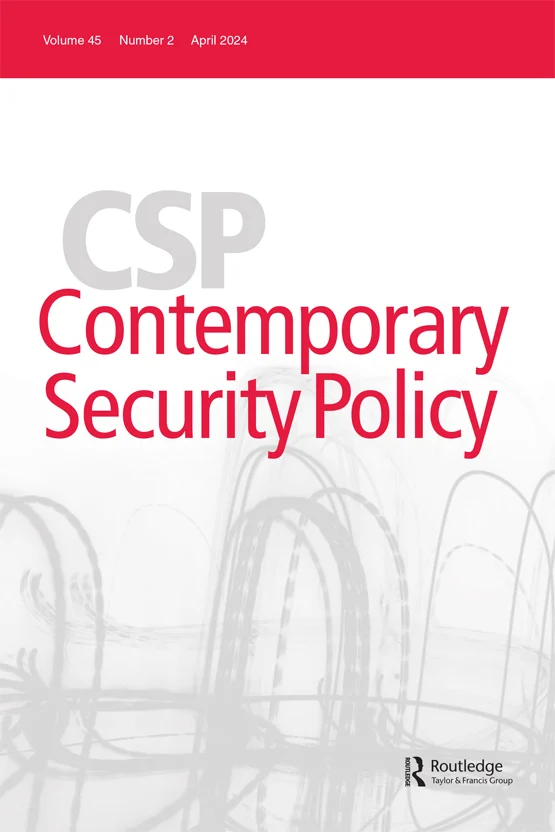Saving face in the cyberspace: responses to public cyber intrusions in the Gulf
IF 5
1区 社会学
Q1 INTERNATIONAL RELATIONS
引用次数: 0
Abstract
How do states “save face” following a cyber intrusion directed at them? Recent scholarship demonstrates that the covert nature of cyber intrusions allows states to respond with restraint, avoiding escalation. But what happens when cyber intrusions become public and are highly visible? This article examines the rhetorical strategies employed by authoritarian Gulf states to mitigate the image-related costs associated with a public cyber intrusion. Drawing on the conceptual language of image-repair and crisis communication theories and employing discourse analysis of original data in Arabic, we identify three types of face-saving strategies: diminishing, self-complimenting, and accusing. Our findings indicate that intrusions involving leaking or faking information bring about unique “face-saving” strategies that do not only deal with the intrusion itself but also with the subsequent information crisis. Overall, the article identifies how states employ diverse rhetorical strategies—beyond attribution—to narrate cyber intrusions and keep cyber conflict contained.在网络空间挽回颜面:对海湾地区公共网络入侵的回应
在针对政府的网络入侵之后,政府如何“挽回颜面”?最近的学术研究表明,网络入侵的隐蔽性使国家能够克制地作出反应,避免事态升级。但是,当网络入侵变得公开且高度可见时,会发生什么呢?本文考察了海湾独裁国家为减轻与公共网络入侵相关的形象成本而采用的修辞策略。利用形象修复和危机沟通理论的概念语言,并利用阿拉伯语原始数据的话语分析,我们确定了三种类型的面子保全策略:减少,自我赞美和指责。我们的研究结果表明,涉及泄露或伪造信息的入侵带来了独特的“面子”策略,不仅可以处理入侵本身,还可以处理随后的信息危机。总的来说,这篇文章确定了国家如何使用不同的修辞策略-除了归因-来叙述网络入侵并保持网络冲突。
本文章由计算机程序翻译,如有差异,请以英文原文为准。
求助全文
约1分钟内获得全文
求助全文
来源期刊

Contemporary Security Policy
Multiple-
CiteScore
14.60
自引率
6.80%
发文量
22
期刊介绍:
One of the oldest peer-reviewed journals in international conflict and security, Contemporary Security Policy promotes theoretically-based research on policy problems of armed conflict, intervention and conflict resolution. Since it first appeared in 1980, CSP has established its unique place as a meeting ground for research at the nexus of theory and policy.
Spanning the gap between academic and policy approaches, CSP offers policy analysts a place to pursue fundamental issues, and academic writers a venue for addressing policy. Major fields of concern include:
War and armed conflict
Peacekeeping
Conflict resolution
Arms control and disarmament
Defense policy
Strategic culture
International institutions.
CSP is committed to a broad range of intellectual perspectives. Articles promote new analytical approaches, iconoclastic interpretations and previously overlooked perspectives. Its pages encourage novel contributions and outlooks, not particular methodologies or policy goals. Its geographical scope is worldwide and includes security challenges in Europe, Africa, the Middle-East and Asia. Authors are encouraged to examine established priorities in innovative ways and to apply traditional methods to new problems.
 求助内容:
求助内容: 应助结果提醒方式:
应助结果提醒方式:


